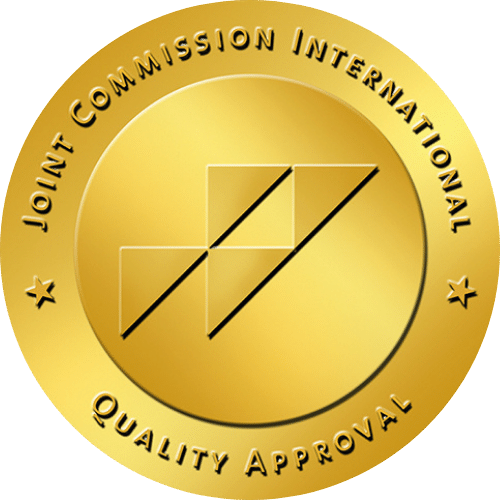4 min read
Recognizing the Signs of Autism in a 15-Month-Old Child

Have you noticed something different in your baby’s behavior and can’t quite put your finger on it? Maybe your 15-month-old isn’t talking yet, or perhaps they don’t seem interested in playing peek-a-boo like other kids their age. These could be the first signs of autism in a 15-month-old, and knowing what to look for is the first step toward helping your child thrive.
In this article, you’ll discover the most common signs of autism at 15 months, understand what’s typical for this age, and explore how to get the right support. Whether you’re in Miami or simply looking for answers, you’re in the right place. Let’s walk through this together.
Why Early Detection of Autism Matters
The Importance of the First 18 Months
The brain of a 15-month-old is like wet clay—malleable and full of potential. What happens in these early months shapes the way your child will communicate, interact, and grow. That’s why spotting the early signs of autism is so critical. At this age, intervention can have the greatest impact.
Imagine trying to plant a tree. If you notice it’s not growing straight early on, you can gently support it and guide its growth. But the longer you wait, the harder it becomes to correct.
Benefits of Early Intervention
When autism is identified early—even at 15 months—children can receive therapies tailored to their needs. These might include speech therapy, occupational therapy, or play-based interaction strategies.
Early support can:
- Improve communication and social skills
- Reduce frustration and behavioral issues
- Help children better connect with their environment
So yes, the earlier you begin, the more room there is to grow.
Common Signs of Autism in 15-Month-Olds

Wondering what to watch for? Let’s take a closer look at the signs of autism in a 15-month-old that you can observe at home. These signs may not confirm a diagnosis, but they are important signals that it’s time to consult with a professional.
Lack of Eye Contact
By 15 months, most babies look at their caregivers’ faces, follow movements, and engage with eye contact during play. If your child avoids eye contact, it could suggest challenges in social engagement.
Not Responding to Name
Call their name, and… silence? If this happens often—even in quiet rooms—it might indicate difficulty in social or auditory processing. This is one of the clearest signs of autism in a 15-month-old.
Limited Gestures and Pointing
Pointing at objects to share interest (“Look at that bird!”) is a milestone many toddlers hit by 15 months. If your child doesn’t point or wave, it may reflect social communication delays, a core trait of autism.
Delayed Speech or Babbling
Many babies start saying simple words like “mama” or “dada” around this age. If your toddler isn’t saying words or even babbling consistently, it’s worth discussing with a specialist. Speech delay is a common sign of autism in 15-month-olds.
Repetitive Behaviors and Movements
Does your child flap their hands, rock back and forth, or spin objects repeatedly? These actions are known as repetitive behaviors, and while not exclusive to autism, they are often present in children on the spectrum.
Poor Social Interaction
If your baby doesn’t show interest in others, avoids cuddling, or seems more focused on objects than people, these are potential early signs. Social development is a key area where differences can show up in autism at 15 months.
Ready to take the next step toward better neurological health? Don’t wait—schedule your appointment today and get personalized care from our expert team. Your well-being is our priority, and we’re here to support you every step of the way.
Understanding Developmental Milestones
What’s Typical at 15 Months
At this age, most children are:
- Walking or starting to walk
- Using 1 to 3 words
- Pointing to things they want
- Showing affection
- Mimicking others
Not all children follow the same timeline, but significant delays across multiple areas—especially when paired with other behaviors—can suggest something more than “just a late bloomer.”
When to Be Concerned
If your child:
- Doesn’t make eye contact
- Doesn’t respond to their name
- Shows no interest in social games
- Hasn’t started babbling or talking
- Doesn’t point, wave, or use gestures
…it’s time to take a closer look. These are developmental red flags worth discussing with your pediatrician.
Red Flags to Watch For
| Behavior | Typical at 15 Months? | Autism Warning Sign? |
| Uses eye contact during play | ✅ | Lack may be a red flag |
| Points to desired objects | ✅ | Absence may signal autism |
| Responds to name | ✅ | Not responding is concerning |
| Uses simple words | ✅ | No words or babbling can be a warning |
| Enjoys social play | ✅ | Disinterest may suggest delays |

How Autism Is Diagnosed in Young Children
Earliest Age of Autism Diagnosis
Did you know that autism can be diagnosed as early as 18 months? In some cases, signs are strong enough to make a diagnosis at 15 months or even earlier. The key is observation, screening, and follow-up.
The Role of Pediatric Evaluations
Your pediatrician is your first stop. They can use tools like the M-CHAT-R/F to check developmental progress and identify concerns. This process is quick and non-invasive—and can point you in the right direction.
Neurological Testing and Assessments
In Miami, Neurology Mobile offers in-depth neurological evaluations specifically tailored for infants and toddlers. Our testing can:
- Identify signs of autism at 15 months
- Differentiate autism from other delays
- Provide a personalized roadmap for support
This isn’t just about labels—it’s about understanding your child better.
If you notice signs of autism in your 15-month-old child, an electroencephalography (EEG) evaluation can be key for early and accurate diagnosis. Learn more about our specialized EEG service and how it can help support your little one’s neurological health.
What to Do If You Suspect Autism
Talking to Your Pediatrician
Write down what you’ve noticed. Share specific examples:
- “My child doesn’t look at me when I call their name.”
- “They flap their hands when excited.”
- “They don’t use any words yet.”
Clear examples help doctors see patterns and offer appropriate referrals.
Requesting a Neurological Evaluation
If your child shows multiple signs of autism at 15 months, ask for a neurological evaluation. At Neurology Mobile, we’ll guide you through every step—gently, clearly, and at your pace.
Next Steps After a Diagnosis
An autism diagnosis doesn’t define your child. It opens the door to therapy, support systems, and a new understanding of how they experience the world. Most importantly, it gives you tools to help them succeed.
Autism Screening Tools for Toddlers
| Tool | Age Range | Purpose | Pros | Cons |
| M-CHAT-R/F | 16-30 months | Quick screening tool | Easy to use, common in clinics | Not a diagnosis |
| ADOS-2 | 12+ months | Diagnostic tool | Highly accurate | Requires trained clinician |
| CARS-2 | 2+ years | Evaluates severity | Detailed insights | Better for slightly older toddlers |
| CSBS DP | 6-24 months | Focuses on communication | Early detection | May require follow-up tools |
| Neurology Mobile Evaluation | 12+ months | Comprehensive neurological analysis | Includes medical, behavioral, and developmental review | Limited to Miami region |
Trust Your Parental Instincts
If you’ve read this far, it’s because you care deeply—and that matters more than anything else. You know your child better than anyone. If something feels different, trust that feeling. Asking questions doesn’t mean you’re overreacting. It means you’re paying attention.
And that? That’s love in action.
You’re not alone. We’re here to help. The signs of autism in a 15-month-old can be subtle, but when you know what to look for—and where to turn—you can make a world of difference.
Frequently Asked Questions About Autism in 15-Month-Olds
Can autism be diagnosed at 15 months?
Yes, autism can be diagnosed as early as 15 to 18 months, especially if the signs are clear and consistent. While some doctors may prefer to wait until 18 months or later, research shows that early signs often appear before a child’s second birthday. If your child is showing multiple red flags—like lack of eye contact, no response to their name, or delayed speech—it’s worth discussing with a pediatrician. Early diagnosis leads to early intervention, which can significantly improve long-term outcomes.
What are the most common signs of autism at 15 months?
The most noticeable signs include:
- Lack of eye contact
- Not responding to their name
- Limited use of gestures like pointing or waving
- Delayed speech or no babbling
- Repetitive movements (like hand flapping)
- Minimal interest in social games or interactions
While some of these behaviors might just be part of a child’s individual development, seeing several of them together could suggest autism. It’s important to consult with a professional if you notice these signs consistently.
Should I be worried if my 15-month-old isn’t talking yet?
Not necessarily, but it’s something to keep an eye on. At 15 months, most toddlers use 1–3 simple words. If your child isn’t saying any words or isn’t babbling, it may be a sign of a speech delay or a developmental difference such as autism. Pairing this with other signs—like no pointing, poor eye contact, or limited social interaction—should prompt a conversation with your pediatrician or a specialist.
How do I know if my child needs a neurological evaluation?
If your child shows multiple early signs of autism or developmental delays that don’t improve over time, it’s a good idea to request a neurological evaluation. These evaluations go beyond typical pediatric check-ups and look deeply into your child’s behavior, development, and sensory responses. A neurologist can determine if autism or another neurological condition might be present and help guide you toward the right support.
Where can I find autism testing for toddlers in Miami?
If you’re in Miami, Neurology Mobile offers specialized autism testing for children starting at 12 months of age. We provide both in-home and clinic-based neurological evaluations tailored for young children. Our expert team helps families get clear answers, early diagnoses, and access to personalized intervention plans. You can book a consultation here to take the next step in your child’s developmental journey.

